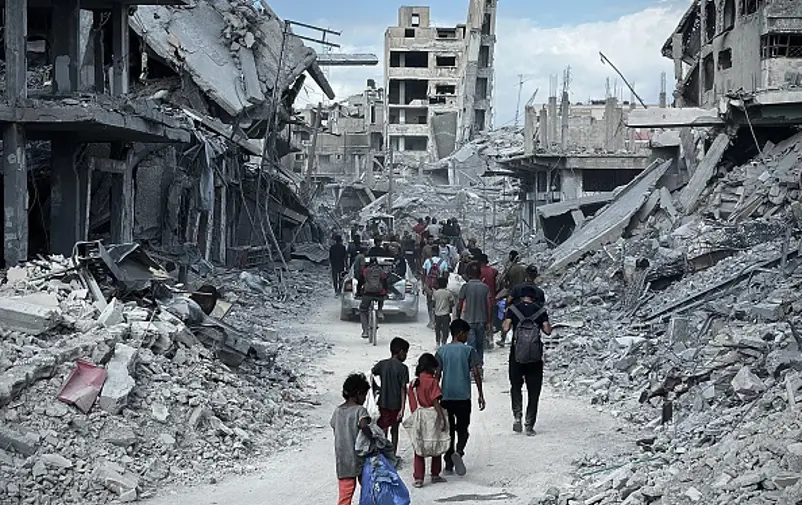Launch of the FBA project in Ukraine
After six months of inception phase, the FBA's project in Ukraine officially starts today. The project aim is to strengthen the respect for the rule of law in local self-government. 12 selected municipalities throughout the country will receive support in order to improve their public service delivery – Shane Quinn is the project manager at FBA.Shane, why is this project important?
– There is a need in Ukraine to strengthen local authorities’ capacity to deliver public services in accordance with rule of law principles. We hope that this project can help to support the reform processes that are already underway in the country particularly related to decentralisation, and to push things in the right direction. At the individual level, we want to increase legal awareness among citizens, so that they not only understand their rights but also how to claim them.
So what happens now, when you go into the implementation phase?
– We are going to conduct capacity-building interventions for staff in local authorities in the selected 12 municipalities. First of all though, we intend to conduct assessments at the level of local self-government to measure the respect for rule of law principles such as transparency, accountability, access to information and the right to appeal for citizens when they legally claim services. Building on these results, we will offer training in applying laws in practice, regulations and rule of law. A central aspect of the project is also to conduct peer to peer exchanges between participating cities on the lessons learned from each assessment, and how they can feed into the reform agenda. Communication is important for any project, and this is particularly the case in Ukraine. Through support to civil society, we are planning awareness-raising campaigns targeting citizens, aiming to inform them about their rights and improve their participation in democratic processes.
Which authorities and public services are concerned?
– The project addresses a range of issues, from the procedure of applying for a passport or national ID card, to registering a new company or ownership of land. It’s widely documented that Ukraine faces a number of challenges regarding how it deals with corruption. Respect for the rule of law aims at strengthening several core principles for making local self-government more accountable, and well developed channels to combat corruption are central for a well-functioning and transparent state and public administration. A lot of ordinary Ukrainians are unaware of their rights when applying for services on a daily basis. This also concerns procedures on the right to appeal. Another issue is that procedures can vary between municipalities, as the laws can be ambiguous, are lacking or are difficult to interpret in practice
The project builds on previous pilot studies carried out by the FBA in cooperation with the UNDP (United Nations Development Programme). The FBA and the UNDP developed a self-assessment tool that enables government agencies to analyse their service delivery from a rule of law perspective. Can you elaborate on the subject?
– Rule of law projects have a tendency to traditionally focus on justice sector reform and criminal law. A focus on public administration is rather unique. But as a citizen, it is far more common to come into contact with administrative authorities and courts rather than criminal courts. Therefore, we developed a toolkit together with UNDP, that could assist authorities to conduct self-assessments to measure the respect for the rule of law in local public service delivery. Essentially, the focus was on the front office, where the citizen meets the state in action. The toolkit was tested in 2010–2013 in the Philippines, Sierra Leone and Ukraine. When the pilot project came to an end it was decided to start a new SIDA funded project in Ukraine running from 2014 to 2017. The city of Lviv, that took part in the pilot project, will be a mentor city for the municipalities taking part in the new project. When the project is completed, the participating municipalities will hopefully continue to exchange experiences and to spread knowledge to other cities. Our goal is for our partners and the participating municipalities to take the project into the next phase, that it achieves sustainability and that the project stakeholders can meaningfully contribute to the reform agenda in the long term.
How did the outbreak of violent conflict in Ukraine affect the project?
– We were in the middle of full planning for the project when the fighting begun. All of a sudden, we were working in a completely different country. We had completed a risk analysis of the project, but very much adapted to a peaceful country in transition. Needless to say, we had to rewrite the analysis a number of times, and continue to do so. Some of the selected municipalities also border the conflict area in Eastern Ukraine. But we will continue working on the project as long as the situation is stable enough and to show our support to those reform-minded municipalities that will be a part of the project. Of course, it’s not always so straightforward considering that there are other more acute priorities, such as the humanitarian and security situations, that are constantly evolving on the ground.







 >
> >
>

